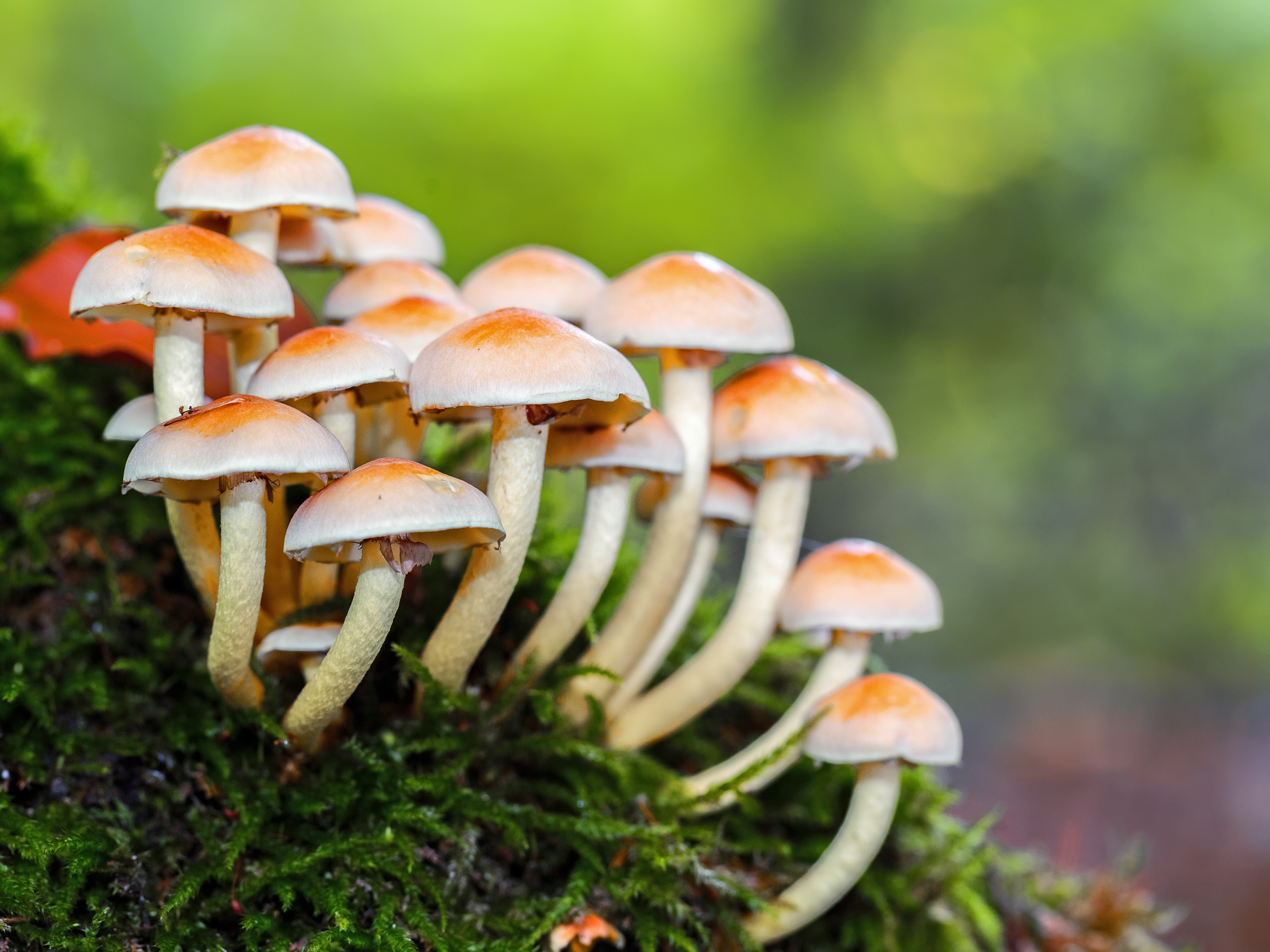Role of Mushrooms in Ecosystems:
Mushrooms play several important roles in ecosystems:
1. Decomposition: Mushrooms are decomposers, breaking down organic matter like dead plants and animals. They play a vital role in recycling nutrients, releasing them back into the soil for use by other organisms. This decomposition process is crucial for nutrient cycling and maintaining soil fertility.
2. Symbiotic Relationships: Many mushrooms form symbiotic relationships with plants, known as mycorrhizae. In these relationships, the fungi colonize the roots of plants, aiding in nutrient absorption in exchange for sugars produced by the plant through photosynthesis. This association benefits both the fungus and the plant, enhancing the plant's ability to uptake water and nutrients while providing the fungus with carbohydrates.
3. Food Source: Mushrooms serve as a food source for various animals, including insects, rodents, and some mammals. They contribute to the food web by providing energy and nutrients to these organisms, which in turn may be preyed upon by larger animals, thereby transferring energy up the food chain.
4. Soil Formation and Stability: Through their mycelial networks, mushrooms help bind soil particles together, contributing to soil stability and preventing erosion. They also secrete enzymes that break down complex organic molecules, aiding in the formation of soil aggregates.
5. Bioremediation: Certain species of mushrooms have the ability to break down or metabolize toxic compounds and pollutants, a process known as bioremediation. These mushrooms can help clean up contaminated environments by transforming harmful substances into less toxic forms or by accumulating them within their tissues, effectively removing them from the ecosystem.
6. Indicator Species: Some mushrooms are sensitive to environmental changes, making them useful indicators of ecosystem health. Monitoring changes in mushroom populations can provide insights into the impacts of pollution, habitat destruction, or climate change on the broader ecosystem.
Overall, mushrooms are integral components of ecosystems, contributing to nutrient cycling, soil formation, biodiversity, and ecological balance. Their diverse roles highlight their importance in maintaining the health and functioning of ecosystems worldwide.

Comments
Post a Comment